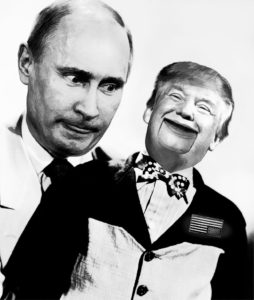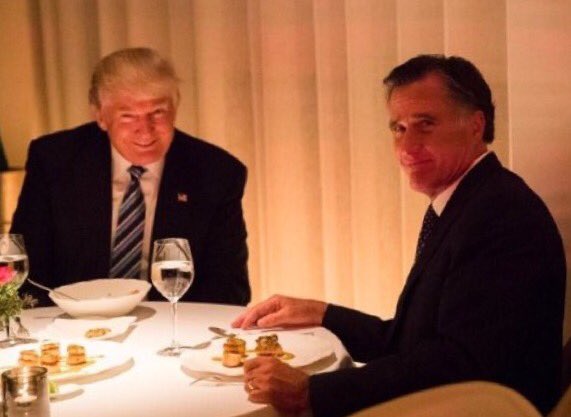An oligarchy, as we use the word today (the dictionary definition is different) is rule by the rich, because they are rich. (A feudal king may be rich, but his power is not primarily a result of his wealth, but rather his wealth is primarily a result of his power.)
As I have written a number of times before, Russia is NOT a plutocratic oligarchy. America, on the other hand, is. What wealthy American elites want is what they get, and what ordinary people want they don’t get: this was shown clearly by the Princeton Oligarchy Study.
When Putin took control of Russia he broke the oligarchs.
In the summer of 2000, Putin met in the Kremlin with about two dozen of the men regarded as the top oligarchs. The meeting was closed, but reports later said he made them a sternly clear deal: Stay out of politics and your wealth won’t be touched…
…
By then, Berezovsky had already begun criticizing Putin. Within months, he left Russia for the United Kingdom and was granted asylum in 2003. Ten years later, he was found dead in his home; a disputed post-mortem examination said he appeared to have hanged himself.
Gusinsky, whose media holdings were critical of Putin and even satirized him, was hauled into jail amid an investigation of misappropriated funds; within weeks, he agreed to sell his holdings to an arm of Russia’s state natural gas monopoly, and he left the country.
Khodorkovsky, regarded as Russia’s richest man at the time, lasted longer, establishing the Open Society reformist group and showing increased political ambitions. But he was arrested in 2003 when special forces stormed onto his private plane and spent a decade in prison on convictions of tax evasion and embezzlement before Putin pardoned him and he left Russia.
I remember reading an article where one of the oligarchs shut down a factory and there was great protest. Putin not only forced the oligarch to re-open the factory, he was there when the oligarch made the announcement, glaring at him and treating him with contempt.
The oligarchs are not in control of Putin or the Russian government (though they have some influence at the provincial and civic levels.)
Now the AP article points out something very smart: that Putin is creating a new group of oligarchs loyal to him, by giving them resources seized from foreign countries leaving Europe. Smart to notice, and smart of Putin, though his successors may regret it. In a way this is very similar to feudalism, though it involves money and resources not armed men and land.
The new oligarchs will be loyal to Putin and probably this successor. Their children may well not be loyal to Putin’s successor’s successor, however, and that person will have to show the whip hand or cut a deal, or both. If they ever succeed in taking control of the government (and they will eventually if the system continues) then it will be very bad for Russians, same as oligarchic control of the US has been very bad for Americans. A “King” often uses the commons against the nobility and thus supports the commons to some extent, a king who is ruled by the nobles acts with them against the commoners.
(This is a reader supported Blog. Your subscriptions and donations make it possible for me to continue writing, and this is my annual fundraiser, which will determine how much I write next year. Please subscribe or donate if you can.)
Let’s add another data point: Russia has vastly ramped up its military production. The US could not do so, the companies who make the weapons said they’d do it, but have been very slow about it because they make more money that way. In Russia, however, in 2022, Medvedev, Putin’s lieutenant stated:
“The goal has been set for a scrupulous execution of the government’s defense contracts in all of its key parameters, [and] prevention of disruptions in the supply of equipment,” he wrote on Telegram. “Attention has been drawn to the fact that all contractors could be held to account, including on criminal charges… Supervision over the execution will continue.”
Although I can’t find it, in another case he gathered them together and explained to them what Stalin did to those who didn’t make production quotas.
You can’t get clearer, or more threatening than that.
Russia’s weapon manufacturers serve the state. They make a profit and those who run them are allowed to become rich, but only if they meet their quotas.
Russia is a modern imperial system, similar to the early Roman one. The governors are hand chosen by Putin from his loyalists (he likes ex-bodyguards) and the bourgeoisie serve him. When Wagner rebelled, not one governor supported their rebellion, even in the first 24 hours when they seemed to be doing well.
America is an oligarchy, Russia has an emperor. The emperor is old, and the question is who will be his successor, which is why key lieutenants like Medvedev and Kadyrov (the governor of Chechnya) are competing in loyalty and fervor.
Both countries have elections, in both countries the elections have little effect most of the time, though their existence does allow the possibility of change thru them. In America, the leader changes, but since Reagan, the fundamental policies haven’t. In Russia, well, Putin is always re-elected, though it is also true that he has always been popular in Russia, with his opposition a minority.
Indeed, that opposition, largely urban professional types, are weaker now than ever, with many of them leaving Russia due to the war.
Putin, like the kings we discussed above, uses the commons against the nobility, to help keep them in check. He does care about his popularity.
So, again, the US is a nominal democracy which is actually a plutocratic oligarchy, and Russia is a nominal democracy which is actually an imperial system without family succession.

 There is a meme in the resistance that Trump is Putin’s “puppet.”
There is a meme in the resistance that Trump is Putin’s “puppet.”